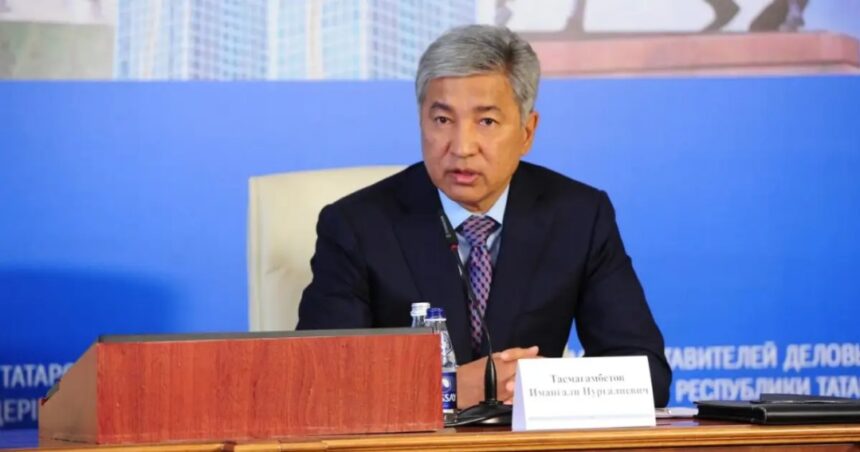RASC News Agency: Imangali Tasmagambetov, the Secretary-General of the Collective Security Treaty Organization (CSTO), has identified Afghanistan as a primary origin of potential terrorist threats and narcotics trafficking for Central Asia. He stated that the CSTO’s decision to enhance the security of Tajikistan’s border with Afghanistan is driven by the growing risk of terrorism spreading from Afghanistan into the Central Asian region. In his remarks at the fourth session of parliamentary committee chairs of CSTO member states on Friday, February 7, Tasmagambetov emphasized:
“The adoption of a targeted interstate program to reinforce Tajikistan’s border with Afghanistan is a testament to our shared recognition of the emerging threats facing Central Asia.”
According to a CSTO press release, Tasmagambetov further stressed that the risk of terrorism, extremism, and drug trafficking primarily originates from Afghanistan. In this regard, he called for closer collaboration among the CSTO parliamentary assembly to ensure regional security. The CSTO comprises Russia, Armenia, Belarus, Kazakhstan, Kyrgyzstan, and Tajikistan as its permanent members. Additionally, Andrei Serdyukov, the Chief of the CSTO Joint Staff, also recently warned, on February 1, that Afghanistan continues to represent a significant threat to the security of the region. He noted that Afghanistan remains a key source of instability, radical ideological spread, terrorism, and the trafficking of narcotics.
Despite the Taliban’s continued denial of the presence of terrorist organizations in Afghanistan, both national and international reports confirm that Afghanistan remains a sanctuary for numerous extremist groups. These groups include militants from Uzbekistan, Turkmenistan, Tajikistan, China, Pakistan, Iran, Arab nations of the Middle East, Russia, and the Caucasus. Furthermore, reports indicate that the Taliban provides substantial financial, political, and logistical support to these groups.






